
Five things you need to know this week about global education
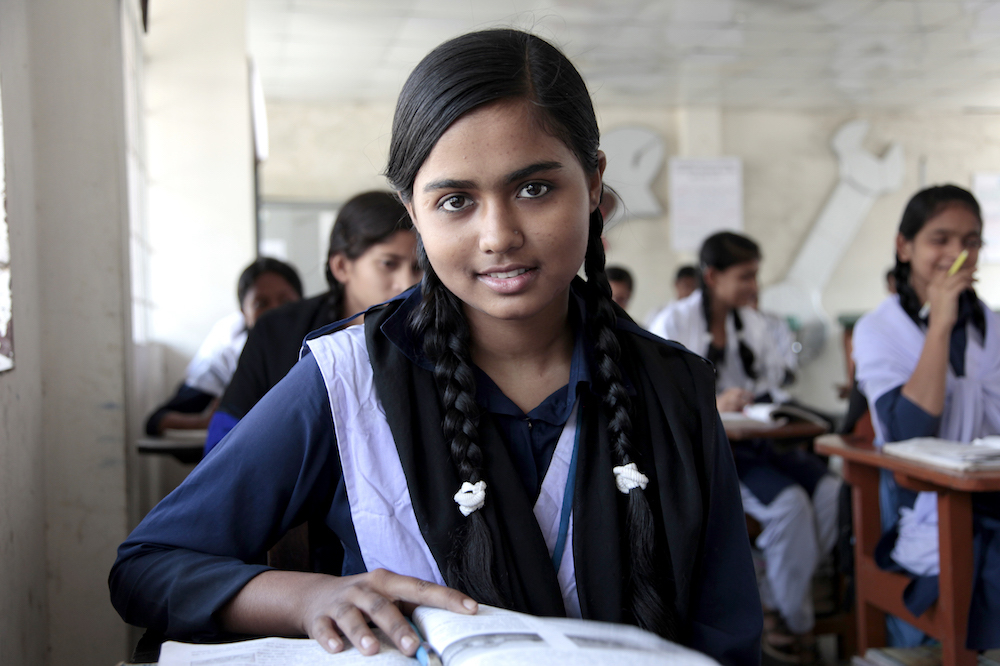
Coronavirus and education, Days in the childhood development calendar, Education in emergencies, Girls' education, Safe Schools Declaration

Why the UK has appointed a global envoy for girls' education - and how an international day will spotlight the need for schools' recovery after the pandemic.
Envoy to lead UK efforts on girls' education
The United Kingdom has appointed a Special Envoy for Girls’ Education as part of its efforts to help 40 million more girls into school in developing countries by 2025.
Member of Parliament Helen Grant will lead Britain’s efforts to boost girls’ education globally as a key priority during its 2021 presidency of the G7 group of major industrial countries.
“Ensuring all girls get 12 years of quality education is rightly a priority for the Government,” said Grant. “High-quality female education empowers women, reduces poverty and unleashes economic growth.
“I will be making it my mission to encourage a more ambitious approach to girls’ education from the international community as we seek to build back better from the Covid crisis.”
It’s been a joy to hear from so many people who are as passionate about #GirlsEducation as I am in the last few days. Empowering #women and girls is a cause so close to my heart and my work advocating for a quality education for every #girl in the world is already well underway pic.twitter.com/iiL9PMChdF
— Helen Grant (@HelenGrantMP) January 18, 2021
Before the pandemic, there were already about 132 million girls out of school around the world – including 34 million of primary age.
The Key, Theirworld’s online advocacy resource, says girls’ education can break the cycle of poverty and create a healthier, wealthier and more educated family.
A child whose mother can read is 50% more likely to live past the age of five and twice as likely to attend school themselves. With just one additional school year, a woman’s earnings can increase by up to a fifth.
The Key’s section on Education and Girls adds: “Progress is being made. The number of out-of-school girls worldwide dropped by 79 million between 1998 and 2018, and gender disparities have narrowed considerably. But there is still a long way to go.”
Global day marks education's recovery
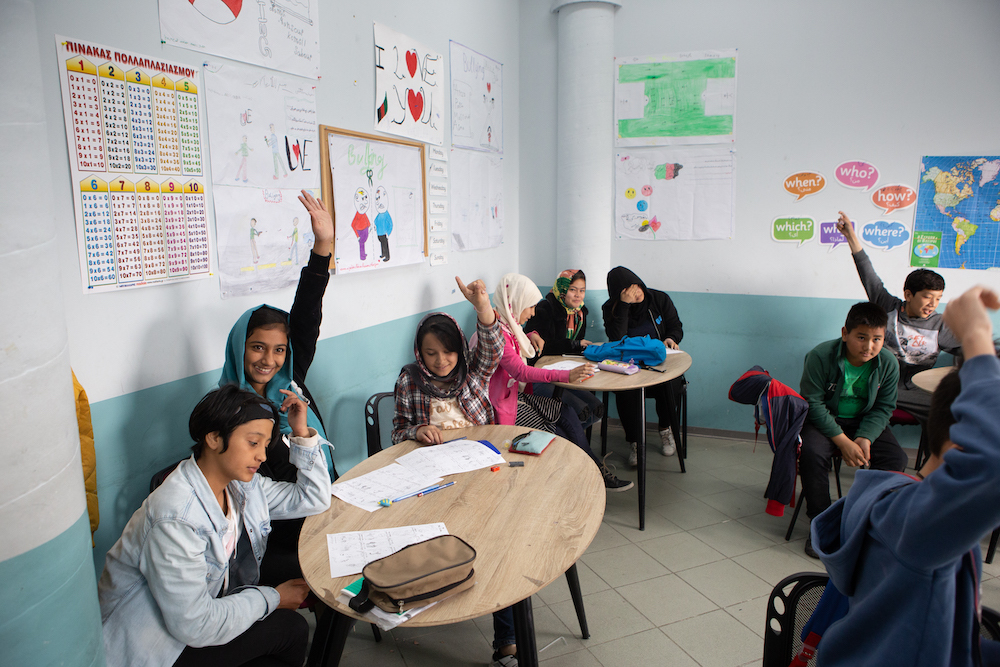
Despite the pandemic, Theirworld has helped to deliver education – including for refugee children at the Tapuat Centre on the Greek island of Lesvos (UNICEF )
Sunday, January 24 is the third International Day of Education – and this year’s theme is “Recover and Revitalise Education for the Covid-19 Generation”.
Many countries will mark the day, while UNESCO and the Centre for Interdisciplinary Studies will hold the Learning Planet Festival to celebrate education and share innovations that fulfil the potential of every learner.
Before the pandemic began, 258 million children and youth were out of school, 617 million children and adolescents could not read and do basic mathematics and less than 40% of girls in sub-Saharan Africa completed lower secondary school.
Covid-19 has worsened the global education crisis, with 1.5 billion students having their education disrupted last year. Theirworld stepped up with several emergency projects helping to deliver education during the pandemic. You can read about our efforts to tackle the crisis during 2020.
Mixed news for Covid-hit schools
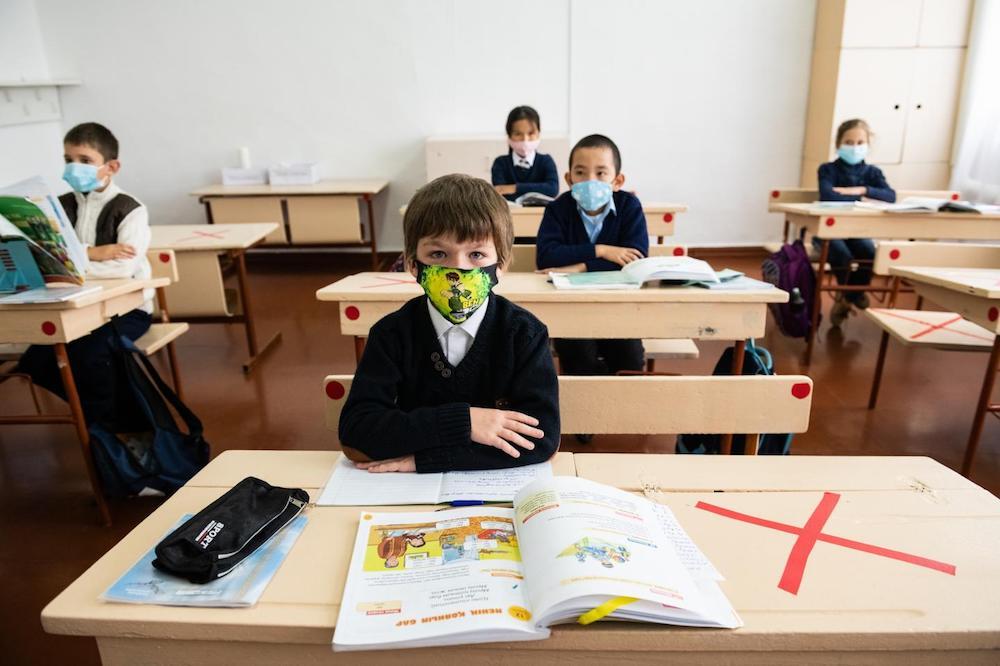
Children in some countries are back at school with the introduction of strict Covid-19 control and prevention measures (UN Photo)
The effects of the pandemic on education continue to be felt across the world. But Russia has begun to fully reopen schools for the first time since teenage students were switched to remote learning in October.
UK education minister Gavin Williamson said yesterday he hoped schools in England will reopen before the Easter break. He also said he hoped teachers would be “up the list” to receive a vaccination when the first wave is completed.
On his first day as US President, Joe Biden ordered the use of disaster funds – normally reserved for natural disasters – to help reopen schools.
But Portugal’s government has shut down all preschools, schools and universities from today to tackle rising cases. Malawi also closed schools this week for at least 15 days under new coronavirus restrictions.
Learning restarts after cyclone damages schools
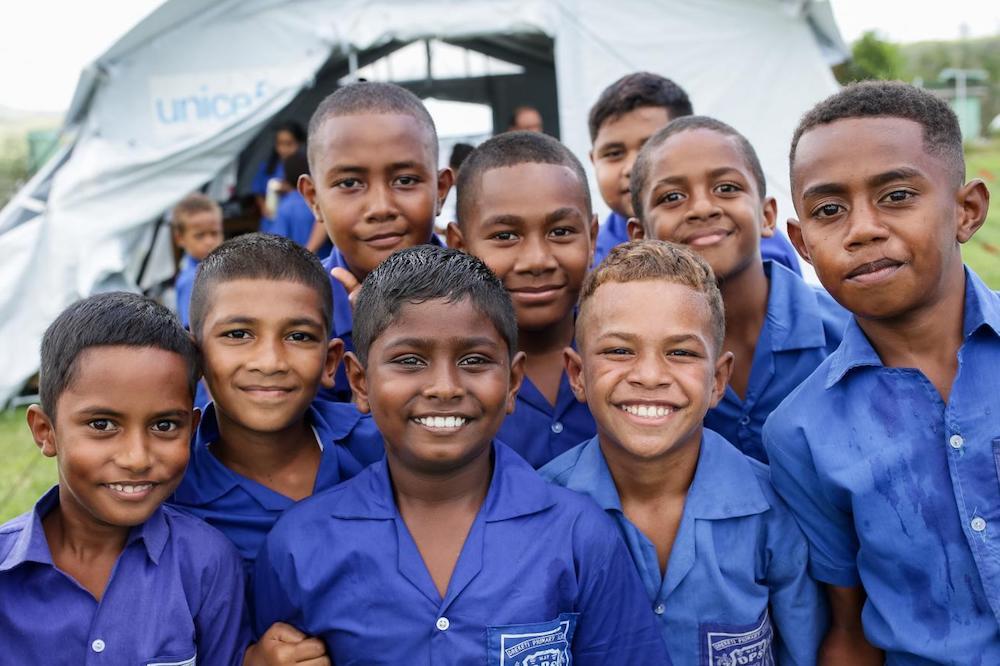
Year five school children at Dreketi Primary School stand in front of the UNICEF-supported school tents (UNICEF / Stephen)
Thousands of children in Fiji have headed back to classrooms just weeks after Tropical Cyclone Yasa destroyed or damaged more than 100 schools.
Almost 200,000 students returned to school – including 8,000 children who were able to go back in Vanua Levu, thanks to temporary learning spaces and education materials supplied by UNICEF.
That included the provision of tents and tarpaulins, school-in-a-box packs and other teaching materials. Early childhood development kits with recreation and learning materials have also been distributed.
The South Pacific island had already been badly hit by the economic effects of Covid-19. Prime Minister Voreqe Bainimarama said: “Every student who is able to attend classes is a blessing. Every hour they study, learn and expand their minds is an investment in Fiji’s success as a country.”
School attacks down but 'still unacceptable'
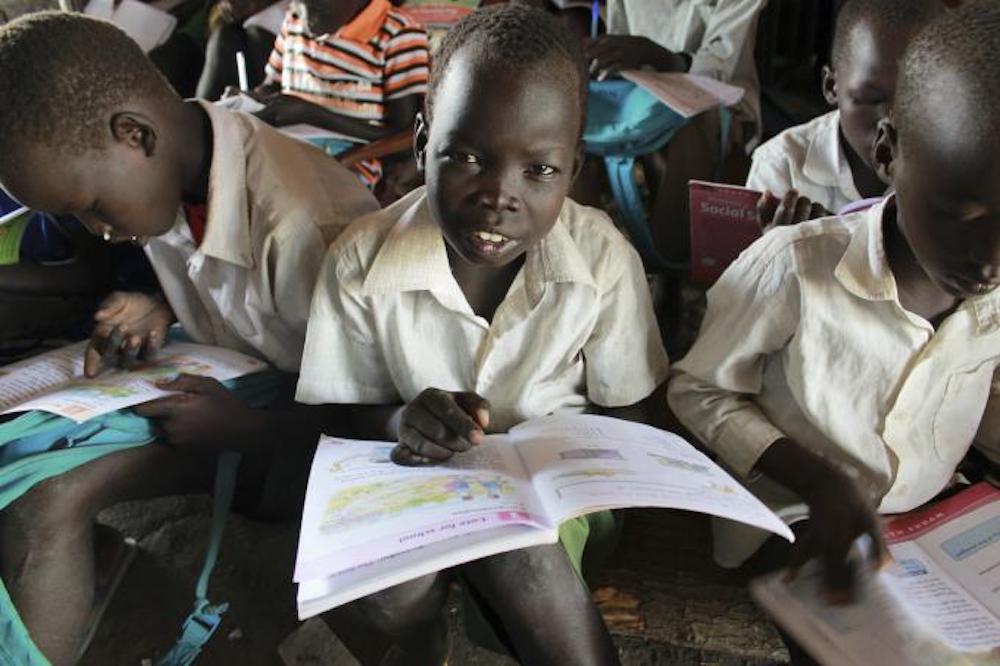
There is continued concern about the targeting of schools in South Sudan (Save the Children)
Attacks on education in South Sudan and violence against children have declined – but they are still being harmed at “unacceptable levels”, according to Save the Children.
The organisation welcomed the downward trend after analysing last week’s report of the Secretary-General on Children and Armed Conflict in South Sudan. The last full year of data, 2019, showed the number of grave violations against children was less than a sixth of what it was in 2016.
But Rama Hansraj, Save the Children’s Country Director for South Sudan, said: “We continue to be concerned about the targeting of schools and hospitals by warring parties. In the past two years, there were 13 verified attacks on schools and nine verified attacks on hospitals which, while a decline on previous years, is still unacceptable.
“We condemn any attack on schools and students as a grave violation of children’s rights – children should be able to go to school safely to learn and interact with their friends and teachers.”
More news

Skills for the future give young people the best chance of success
